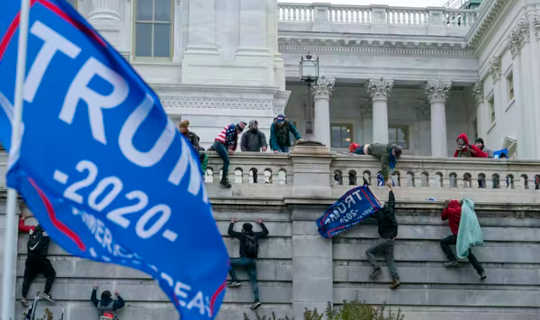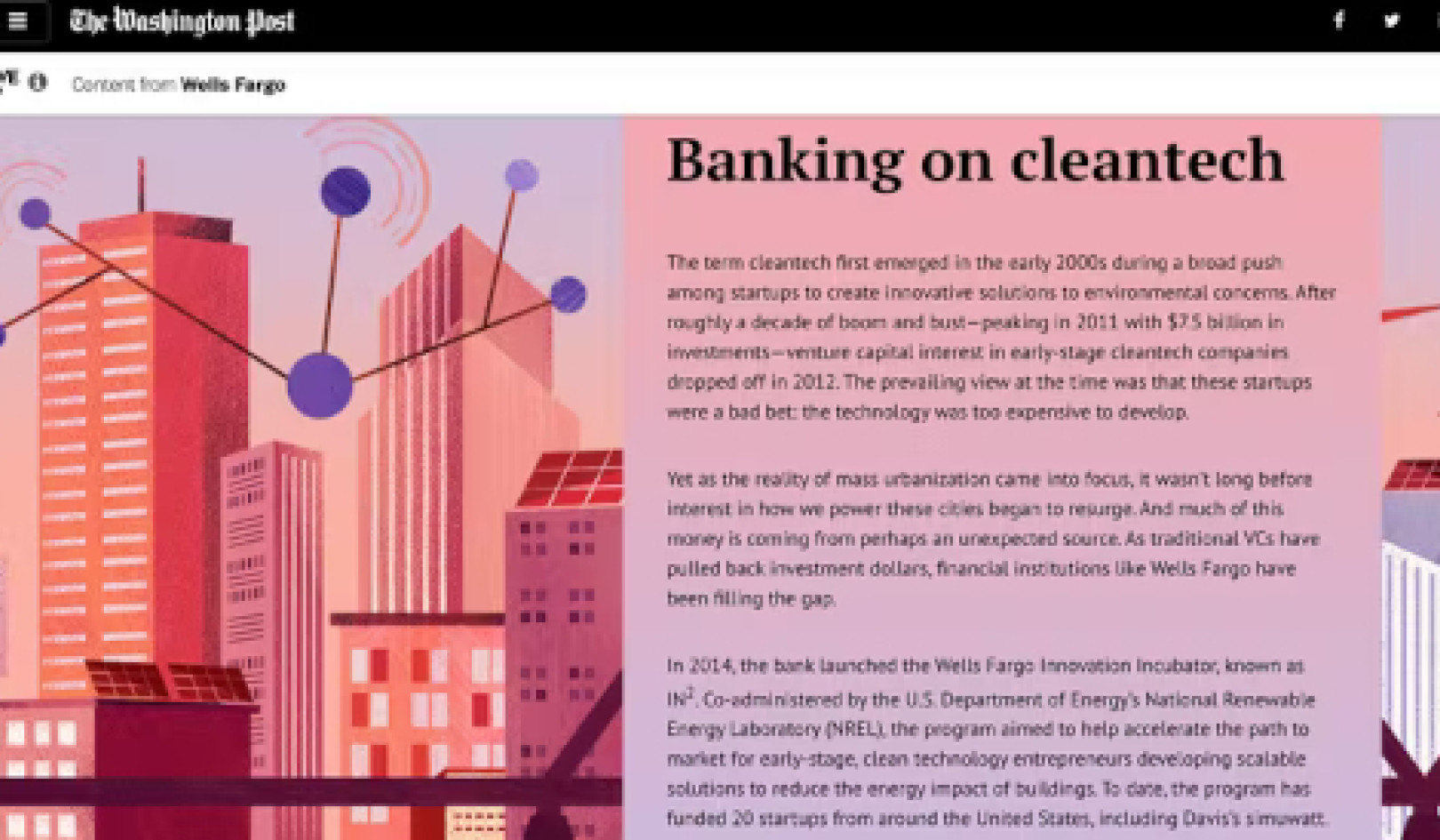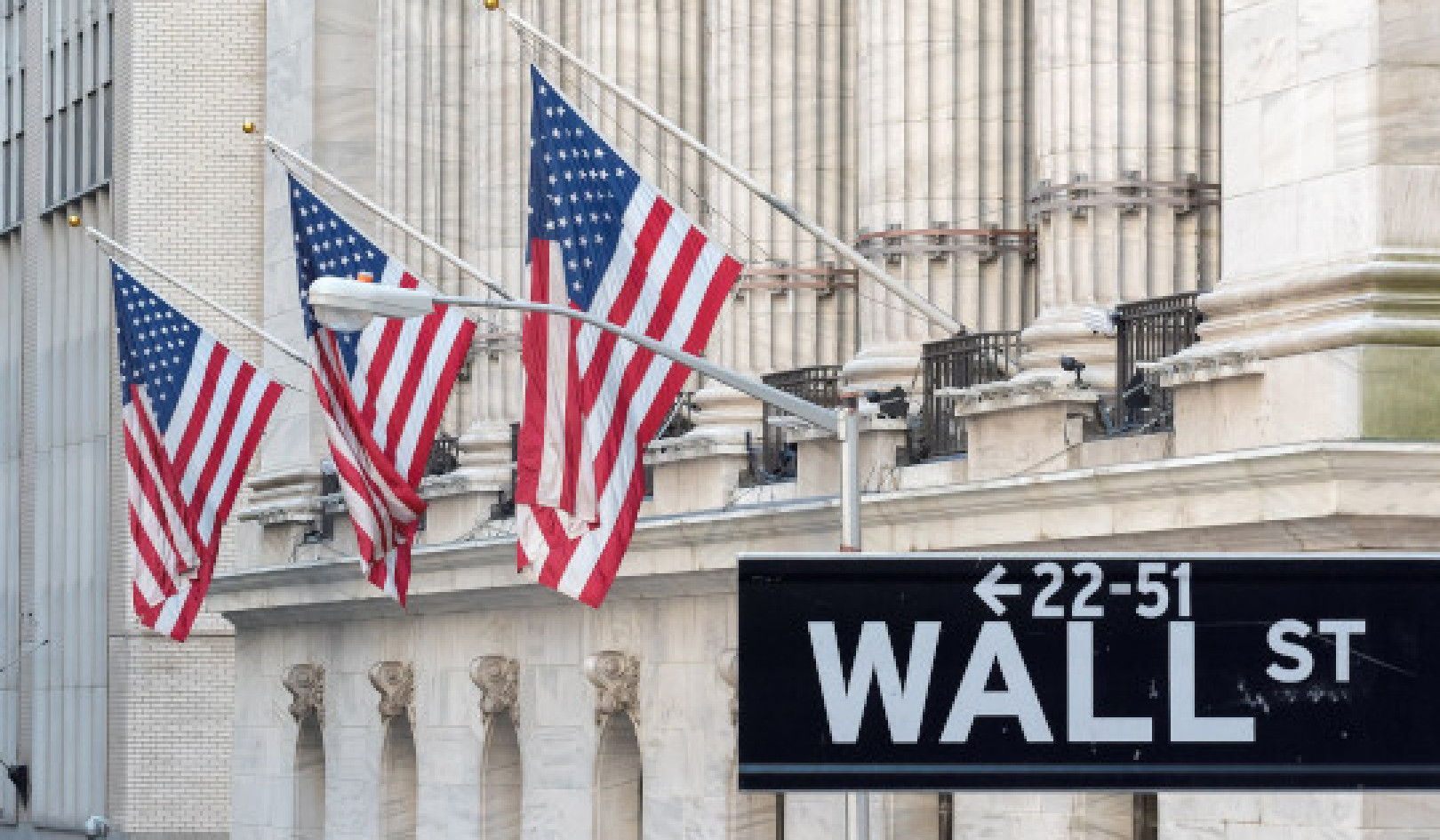
Rioters loyal to Donald Trump climb the West Wall of the the U.S. Capitol in Washington, D.C., on Jan. 6, 2021. (AP Photo/Jose Luis Magana)
The United States is on the precipice of becoming a failed democratic state. In January 2021, pollster John Zogby conducted a survey that showed 46 per cent of Americans believe that the U.S. is headed toward another civil war.
As Canada’s closest neighbour fractures at the seams and slides toward dangerous forms of authoritarianism, we should be deeply worried. As someone whose research has tried to explain how and why democracy works, I am deeply worried.
We should be planning our possible responses and preparing for what comes next. Failing to do so will put our own democracy at risk — as we’re witnessing right now with the so-called freedom convoy in Ottawa and its nefarious funding.
The worst-case scenario in the U.S. — blood in the streets — isn’t necessarily the most likely, but we ought to resist the tendency to assign too low a probability to events that could have serious, catastrophic consequences.
Some of the most constructive academic work in the middle of the 20th century, after all, was motivated by doom-saying around nuclear war (Thomas Schelling’s Nobel Prize work on game theory, for example).
More recently, predictions about the devastation that will result from the climate crisis are being used to drive public policy and political debate. Will all the predictions bear out? Maybe not, but the intellectual exercise of preparing for the worst can improve our decision-making and position Canada to succeed in times of crisis.
Jan. 6 just a prelude?
For some reason, systematic and dispassionate analyses of what will happen if or when the American experiment with democracy ends have not happened, either in Canada or the U.S.
Many are engaged in the battle to prevent the right wing from stealing the next U.S. election, but this is only one, narrow concern. Spend an hour listening to someone like Dan Bongino, a former Secret Service agent and Donald Trump supporter, and you’ll come away certain that the violence we all saw on Jan. 6, 2021, was not an isolated event but the beginning of something bigger.
The trucker convoy is one small example of what can happen here when the dangerous forms of anti-democratic rhetoric south of the border spread into Canada.
The people in Ottawa aren’t protesters, they’re occupiers. They reject the use of democratic rhetoric in favour of authoritarian rhetoric, and they aim to dismantle the system that makes protest and free speech possible in the first place.
What happens when that anti-democratic rhetoric becomes the norm in the U.S.? The combination of media outlets like Fox News that have far-reaching impact and anti-democratic, authoritarian rhetoric is exactly a recipe for the contagious spread of the kinds of behaviours that can threaten our own democracy.
What are the likeliest problems? Most obviously, violent rhetoric tends to fuel violent actions. We will see violent rhetoric normalized by cultural figures like Tucker Carlson but also U.S. politicians.
Imagine Fox News no longer playing the role of a media outlet that’s welcoming to the fringe voices of the far right, but instead is the formally sanctioned voice of the state. The more violent, extremist rhetoric becomes the norm, the more danger and violence we’re likely to see.
What will happen when Carlson turns his attention to Canada as a target and radicalizes our own citizens with the authoritarian rhetoric he regularly employs?
Critical questions for Canada
Can we, should we, regulate American media if they are clearly driving the rise of authoritarianism and the spread of propaganda aimed at ending free, liberal democracy? How do we treat American broadcast media and social media if they become obviously responsible for hastening the end of liberal values like equality, reason and the rule of law?
How will Canada combat the virulent spread of propaganda and misinformation when it comes directly from a government pretending to be democratic while enacting fascism?
What if American journalists wedded to the ideals of free speech, objectivity and professional standards of fairness become targets of state violence? Will we protect the right to a free press? How?
If American elections become obviously rigged, what will our role be in monitoring that kind of democratic backsliding?
What about American citizens still committed to the rule of law and the basic tenets of liberal society? Will they seek asylum in Canada by the millions?
How do we negotiate trade deals with an ideological, irrational state? We’ve had some preparation for this during Donald Trump’s one term as president, but he was still constrained by a semi-functioning system of checks and balances. What happens when that system is dismantled?
Ripple effects
We need a national conversation on these urgent questions. Our security, our economy and our culture are so deeply enmeshed with the U.S. that any significant change there will have ripple effects here.
Those ripples may turn into a tsunami should the changes be as radical and dire as some predict.
Such a national conversation will require us to shore up our own democracy and to learn how to regulate and prevent the spread of authoritarian rhetoric, hate speech and other forms of misinformation in the U.S.
We must be ready and able to champion the values and advantages that are afforded by living in a democracy. We might avoid the worst, but the preparation will make Canada a stronger, freer, safer country.![]()
About The Author
Robert Danisch, Professor, Department of Communication Arts, University of Waterloo
This article is republished from The Conversation under a Creative Commons license. Read the original article.

Related Books:
On Tyranny: Twenty Lessons from the Twentieth Century
by Timothy Snyder
This book offers lessons from history for preserving and defending democracy, including the importance of institutions, the role of individual citizens, and the dangers of authoritarianism.
Click for more info or to order
Our Time Is Now: Power, Purpose, and the Fight for a Fair America
by Stacey Abrams
The author, a politician and activist, shares her vision for a more inclusive and just democracy and offers practical strategies for political engagement and voter mobilization.
Click for more info or to order
How Democracies Die
by Steven Levitsky and Daniel Ziblatt
This book examines the warning signs and causes of democratic breakdown, drawing on case studies from around the world to offer insights into how to safeguard democracy.
Click for more info or to order
The People, No: A Brief History of Anti-Populism
by Thomas Frank
The author offers a history of populist movements in the United States and critiques the "anti-populist" ideology that he argues has stifled democratic reform and progress.
Click for more info or to order
Democracy in One Book or Less: How It Works, Why It Doesn't, and Why Fixing It Is Easier Than You Think
by David Litt
This book offers an overview of democracy, including its strengths and weaknesses, and proposes reforms to make the system more responsive and accountable.
























